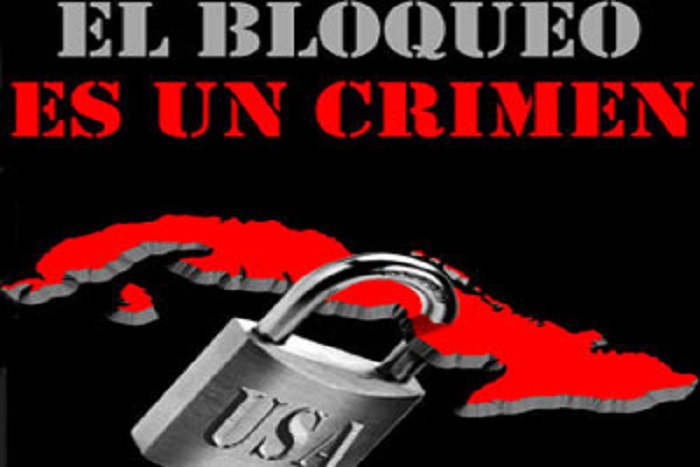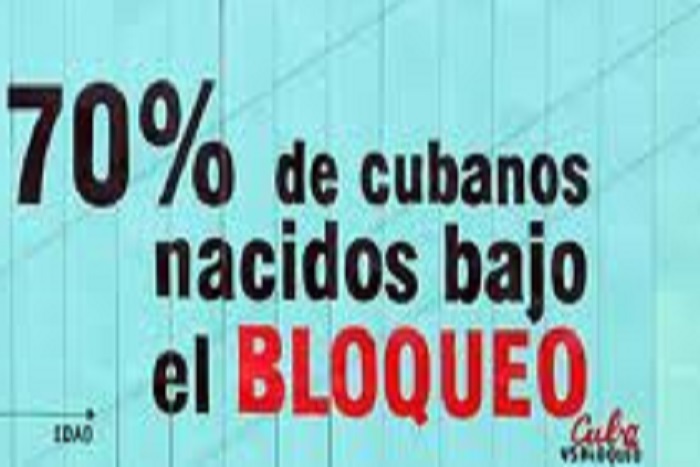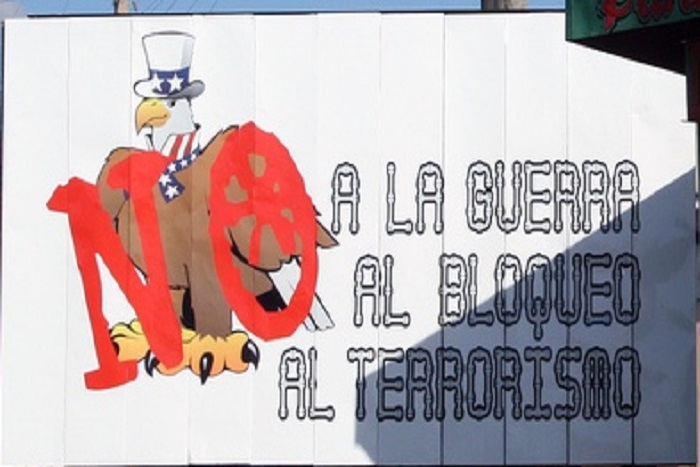The United Nations General Assembly (UNGA) routinely votes in favor of Cuba to condemn the unilateral trade, financial and economic sanctions being imposed by the United States on Cuba. This is an emotional issue which, rightly, majority of the UN member states including the Philippines have condemned. As history has shown, embargoes, blockades or sanctions, however one calls it, never work. In the entire history of its utilization, not a single state which had been subjected to it had succumbed under its pressure.
The real targets of the sanctions – the leadership and their ilk – are usually spared of the hardship brought about by the deteriorating living conditions as they remain to have access to available resources, albeit scarce. On the other hand, it is the common people – those who eke out for their daily living, that suffers most. In Cuba’s case, the country has been subjected to fifty years of sanctions but the current Socialist regime remains strong as ever.
On the contrary, the Cuban regime has found a potent raison d’être to validate its existence. It has portrayed itself quite satisfactorily as the victim of a big neighborhood bully who is out to destroy the country’s existence. The bloqueo is an ubiquitous part of the daily life of every Cuban. They are reminded about it by gigantic billboards and murals that are to be found almost everywhere. Official government news sources saturate the airwaves about its evils. There is no escaping from the realities brought about by the bloqueo inside Cuba.

It appears that contrary to its original objective of fomenting unrest inside Cuba, the continuing U.S. sanctions have done nothing but increase the resolve of the Cuban people to resist American pressure. Hate against the yanquis that had initially boiled over in 1959 due to accumulated grievances, whether real or imagined, is being amplified each passing day due to the sanctions. The Americans had the right to demand reparations for the properties nationalized by the Castro regime. But to achieve that by means of strangling the Cuban people into submission was, in hindsight, not the smartest thing to do regardless of how one feels about the perceived evils of Communism.
A small excerpt on the blog of Cuban dissident blogger Yoani Sanchez has piqued my attention in which she mentions that one reason why ex-Cuban Foreign Minister Felipe Perez Roque was cashiered (aside, of course, from the now-infamous jokes he apparently told about Raul Castro and Ramon Machado to a friend who, unfortunately for him, was recording everything he was saying) was because the regime was unhappy with his choice of words in speech he made at the UN General Assembly. He referred to the “blockade” as “embargo,” which is apparently a mortal sin in the eyes of Fidel and Raul. Why all the fuss about two words which seem, to a casual observer, to be the same. How should it really be called then? Is it an embargo or a blockade?
The Americans claim that what they have in place is a selective embargo or a partial prohibition of commerce with Cuba. The original embargo dates back to 1960 when then President John F. Kennedy imposed it in retaliation to the nationalization of American-owned companies inside Cuba by the Cuban regime. At that time, Fidel Castro has not announced yet the Socialist nature of his government. It was strengthened into total embargo in the aftermath of the Cuban Missile Crisis and at that time Fidel had already announced his intention to turn the Caribbean Island into a Socialist Utopia. Little by little, the embargo has been whittled down depending on the point of view of the sitting US president. Whenever a Democrat (except JFK and Lyndon Johnson) is in power (e.g., Carter, Clinton and Obama) the US would open up a little bit to Cuba. Conversely, US policy on Cuba seems to harden once a Republican gets elected (e.g., Nixon, Reagan, Bush Sr. and Bush Jr.). President Obama’s current policy on Cuba mirrors that of ex-President Clinton, which to say the least, is more open than the ones imposed by Bush Jr.

This shows that the U.S policy on Cuba is very much a product of American politics. It is due to the clout of the Cuban-American exile community in Florida politics that makes this issue larger than what it should be. Florida is a swing state that usually determines the fate of every modern US Presidential Election. This forces US Presidential aspirants, whether they actually support it or not, to kowtow to the demands of the vociferously anti-Castro exile population in Miami.
To be better illuminated on the subject, one must read the justifications Americans use for the existence of the trade, economic and financial embargo. The Americans are invoking their sovereign right to trade or not to trade with another country. They claim that they should not be forced into trading with another country if they don’t want to. For them, it’s a matter of choice. The Americans insist that the term should no longer be valid as they have already allowed the sale of agricultural, medical and food products to Cuba and lifted the restrictions on Cuban-Americans to travel to Cuba (although non-Cuban Americans still require Treasury license to visit). The Americans point out that the US has become the biggest food supplier and, overall, the fifth largest trade partner of Cuba. Hence, the pronouncements that US embargo is starving the Cuban people is false, according to the Americans.
In Cuba’s view, they are being blockaded by the United States. The choice of words is very important because a blockade is an act of war as opposed to embargo or sanctions. By invoking the term bloqueo, the Cuban regime is reinforcing its position that it is still in a State of War with the US although not by choice. Thus it is understandable how an immense faux pas it must have been in the eyes of Fidel and Raul for a Cuban Foreign Minister, the official mouthpiece of the regime, to use embargo instead of the usual bloqueo in defense of Cuba’s position against the U.S. He just gave up without a fight the raison d’être invoked by Fidel and Raul for Cuba’s continued resistance to the US which is to claim that it is defending itself from a war being waged against it by its giant neighbor to the North.

So which one is right? Is Cuba still under a US blockade or an embargo? Semantics aside, there was indeed a time when the US blockaded Cuba and that was during the Cuban Missile Crisis and its immediate aftermath. Every seagoing vessel headed to any Cuban port, particularly Soviet-owned, were being prevented from docking by the US Navy. However as time passed by, the severity of the blockade has been whittled down little by little. Today, the U.S. is actually supplying a big chunk of Cuba’s food supplies (although Cuba is forced to pay the American suppliers up front for the food purchases, a fact that suppliers from other parts of the world envy considering Cuba’s propensity for late payment).
On an annual basis, the UNGA overwhelmingly approves the Cuban-sponsored resolution, entitled The Necessity of Ending the Economic, Financial and Commercial Blockade Imposed by the United States of America Against Cuba. While this clarification is not in defense of the US position, it must be noted that the term blockade was used instead of the more grammatically-correct embargo in the resolution’s title. Negotiations for UNGA resolutions are known to be very contentious on the use of phrases and words. That none of the UNGA members dared to point out this oversight is a testament to the unpopularity of the continuing US sanctions against Cuba, regardless of how it is called, and the clout of Cuba in the multilateral organization. It also reflects the point of view of the Americans that, for them, this is a bilateral issue between the US and Cuba, and the rest of the world should mind their own business. Taking about how impotent the UN really is, this one is a fine example of it. For all intents and purposes, the resolution should use the term embargo instead of blockade, if only for grammatical correctness. How can one indeed accuse the U.S. of holding a blockade against Cuba if it is one of the country’s biggest food supplier and its fifth biggest trade partner? It’s a misnomer that should be corrected.
Future participants of the UNGA should take note that they can vote in favor of Cuba’s position for morality’s sake, but at the same time they should demand grammatical correctness for its sake. In any case, calling it an embargo does not diminish the moral aspect of the resolution.